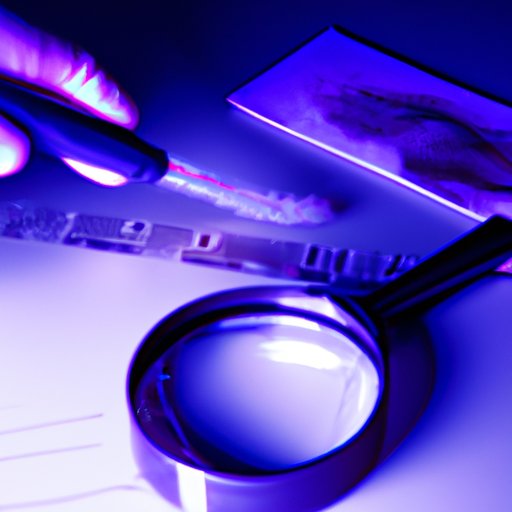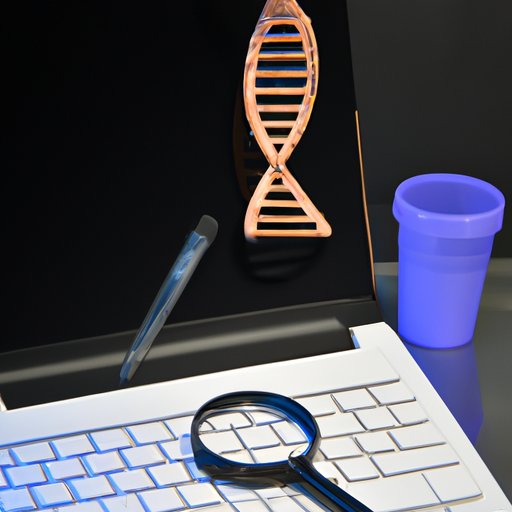Introduction
Forensic science is defined as the application of scientific principles and techniques to matters of criminal and civil law. It is a vital tool used by law enforcement, legal professionals, and scientists to investigate crimes, uncover evidence, and ultimately ensure justice is served. This article will examine why forensic science is important, exploring the role it plays in solving crimes and its impact on the criminal justice system.

Exploring the Role of Forensic Science in Solving Crimes
At a crime scene, there are typically four categories of evidence that can be examined: physical evidence (such as fingerprints, fibers, or hair), biological evidence (like bodily fluids or tissue), chemical evidence (including drugs or explosives), and documentary evidence (like handwriting or computer files). By analyzing these different forms of evidence, forensic scientists can help to determine what happened at the scene of a crime and identify potential suspects.
Computer forensics is an increasingly important area of forensic science, since digital evidence is becoming more common in criminal investigations. Computer forensics experts are able to uncover data stored on computers, smartphones, tablets, and other devices, which can provide valuable information about the perpetrator of a crime. For example, they may be able to recover deleted emails, text messages, photos, or videos that can be used as evidence in court.
Forensic science also offers a number of benefits for law enforcement. For instance, it can provide crucial leads in investigations, as well as help to corroborate witness statements. It can also help to narrow down the list of suspects, allowing law enforcement to focus their efforts on the most likely perpetrators. Lastly, forensic science can be used to disprove an alibi or provide proof of innocence if needed.
Investigating the Impact of Forensic Science on the Criminal Justice System
DNA evidence has revolutionized forensic science, as it allows for highly accurate identification of individuals. By comparing DNA samples from a crime scene with those from known suspects, forensic scientists can determine whether a person was present at a crime scene or not. DNA evidence has been instrumental in exonerating wrongfully convicted individuals, as well as providing closure in cold cases.
Forensic pathology is another key component of forensic science, as it helps to determine the cause and manner of death in criminal cases. By analyzing autopsy reports, toxicology results, and other evidence, forensic pathologists can determine how a person died and whether it was due to natural causes or foul play. This information can then be used to build a case against a suspect or to rule out certain suspects.
Forensic toxicology is another important field of forensic science that focuses on the detection and quantification of drugs and other toxins in the body. This type of evidence can be used to determine whether a person was under the influence of drugs or alcohol when a crime occurred, and can also be used to prove intent in certain cases. Lastly, forensic ballistics involves examining firearms and ammunition to determine whether they were used in a crime, and can also be used to link multiple crimes together.
Conclusion
In conclusion, forensic science plays a vital role in solving crimes and bringing criminals to justice. It enables law enforcement to collect and analyze a wide range of evidence, including physical, biological, chemical, and digital evidence. DNA evidence has greatly improved the accuracy of criminal investigations, while forensic pathology and toxicology have helped to shed light on suspicious deaths. Finally, forensic ballistics can be used to link multiple crimes together and to identify the weapons used. In short, forensic science is an essential tool in the fight against crime.
(Note: Is this article not meeting your expectations? Do you have knowledge or insights to share? Unlock new opportunities and expand your reach by joining our authors team. Click Registration to join us and share your expertise with our readers.)
